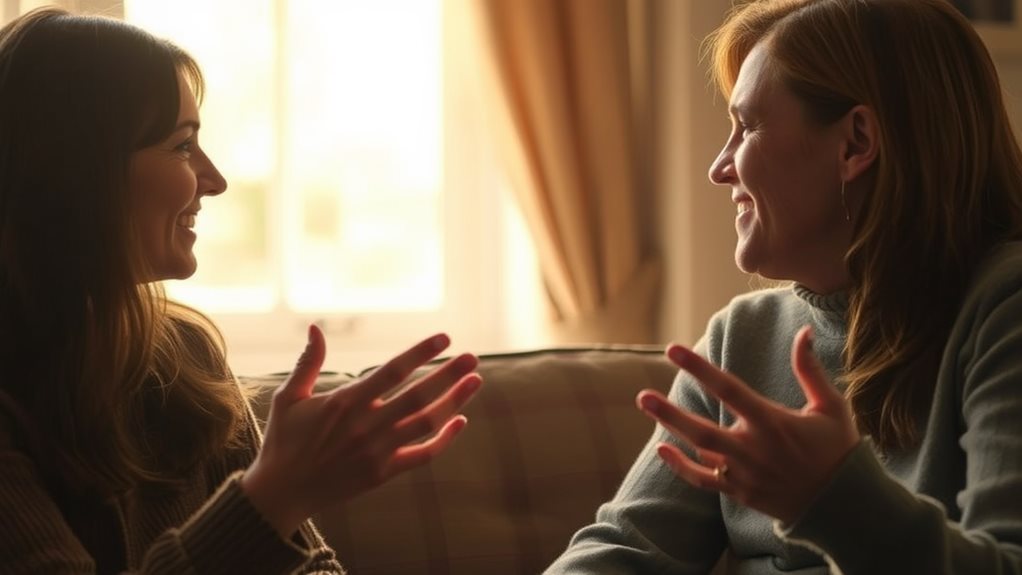
The Art of Communication: Building Stronger Relationships
You’ve likely experienced the impact of effective communication on your relationships. When you express yourself clearly and listen actively, you build trust and understanding with others. But what happens when communication breaks down? You may feel frustrated, unheard, or disconnected. The good news is that refining your communication skills can open up new opportunities for meaningful connection. And if you’re looking for inspiration beyond personal growth, explore how luxury experiences can enhance connections through exclusive offers and premium service at casinos online con bono de bienvenida del 100%. To strengthen your relationships, you need to overcome the barriers that hinder clear communication. Let’s explore what you can do to improve your communication skills and foster deeper connections.

Understanding the Fundamentals of Effective Communication
When you take the time to develop effective communication skills, you’ll find that your relationships become stronger and more resilient. You’ll learn to convey your thoughts, feelings, and needs clearly, which helps to build trust and understanding.
Verbal cues like tone, pace, and inflection play a big role in shaping the intended meaning of your words. Meanwhile, nonverbal signals – including body language and facial expressions – can reinforce or contradict your message.
To communicate effectively, it’s essential that you’re aware of both aspects. By paying attention to your verbal and nonverbal cues, you can avoid misunderstandings and show empathy and understanding towards others.
This clarity, in turn, will lead to deeper and more meaningful connections. Effective communication is key to strong, lasting relationships.
Breaking Down Barriers to Clear Communication
As you endeavor to communicate effectively, it’s essential to recognize that various barriers can hinder your progress. These barriers can stem from differences in cultural background, personal experiences, or even individual communication styles.
You can break down these barriers by being aware of nonverbal cues, such as body language and tone of voice, which can convey just as much information as spoken words. Developing emotional intelligence is also key, as it allows you to understand and empathize with others’ feelings.
By acknowledging and addressing these barriers, you can create a safe and open environment where clear communication can thrive. This, in turn, fosters deeper understanding and stronger relationships with those around you.
Cultivate this awareness to communicate more effectively.
The Power of Active Listening in Relationships
Now that you’ve broken down barriers to clear communication, you’re ready to harness the power of active listening in your relationships. This means paying attention to nonverbal cues like body language and tone of voice, and matching your response to the emotions and needs of the other person.
When your partner is speaking, maintain eye contact, and use verbal cues like “uh-huh” or “I see” to show you’re engaged. Then, respond with reflective responses that paraphrase and summarize what they’ve said. For example, “Just to make certain I understand, you’re feeling frustrated with the way things have been handled?”
This helps guarantee you understand their perspective, and shows you value their thoughts and feelings. Active listening builds trust and deepens connection in your relationships.
Navigating Conflict Through Constructive Communication
Constructive communication plays an essential role in managing conflict effectively. When you find yourself in a disagreement, you can either let it escalate or use communication to resolve it.
You can steer conversations toward conflict resolution by listening carefully to the other person and giving constructive feedback. This means focusing on the specific issue rather than making general attacks. Instead of saying “You always do this,” say “This action hurt me because…”
By specifying the problem, you open the door for a constructive conversation about how to move forward. You’ll often find that simply talking through the issue can clear up misunderstandings and resolve the conflict.
Learning to communicate in this way will strengthen your relationships over time.
Cultivating Empathy and Understanding in Your Interactions
When you take the time to truly understand someone’s perspective, you build a connection that goes beyond just resolving conflicts – you foster a deeper understanding that strengthens your relationship.
Cultivating empathy is a skill that develops with practice and patience, and it’s vital for effective communication. By actively listening and engaging in perspective taking, you can break down barriers and gain a deeper insight into others’ thoughts and feelings.
Developing emotional intelligence also plays an important role in cultivating empathy. As you become more attuned to the emotions of others, you can respond in a way that’s supportive and understanding.
This creates a safe and supportive environment where people feel heard and valued, leading to stronger and more meaningful relationships.
